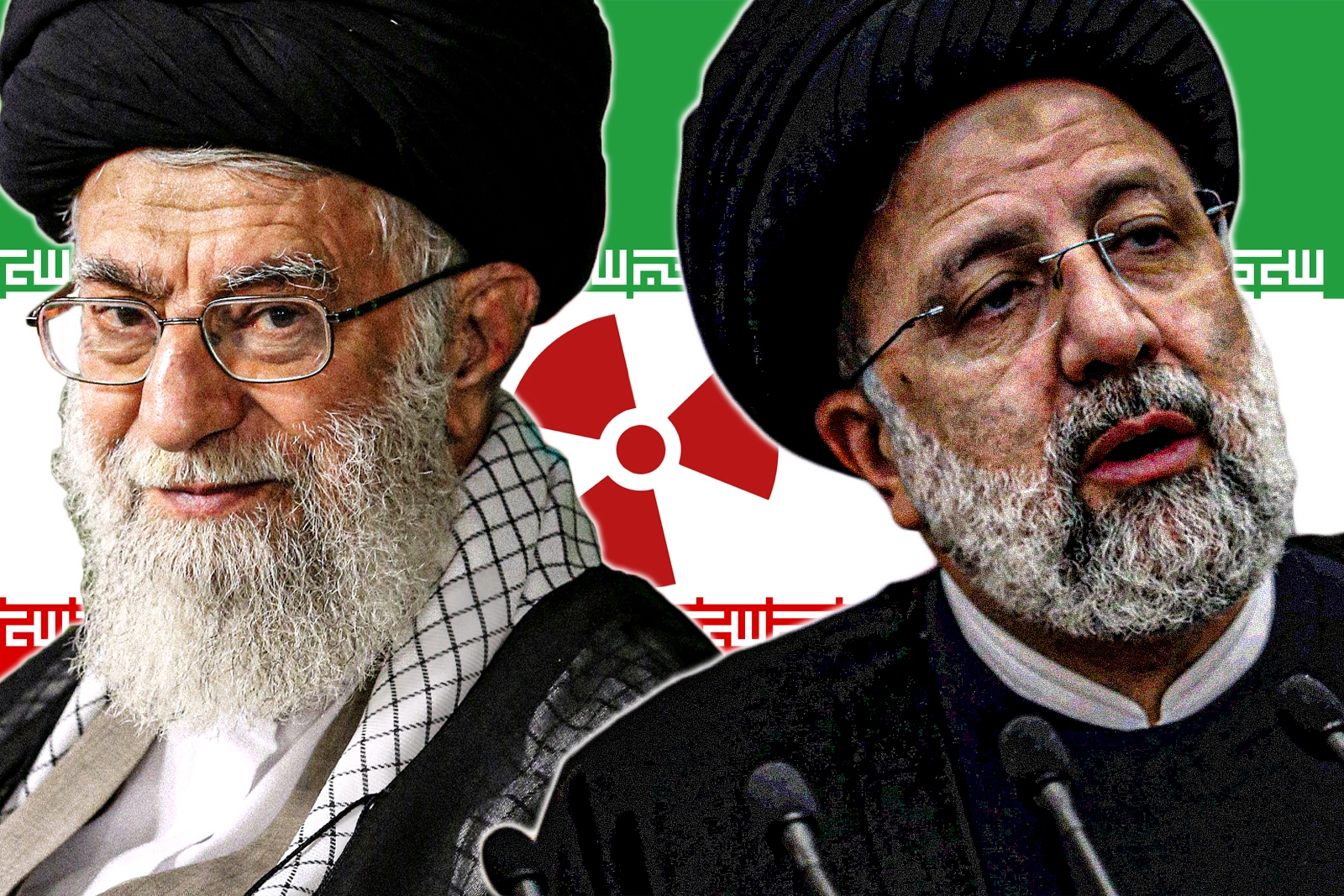
Vague Denials and Veiled Threats Define Iran’s Response to Possible Nuclear Censure
The International Atomic Energy Agency’s (IAEA) Board of Governors began a week of meetings on Monday, which were preceded last week by a report from the agency’s head that clarified many of the persistent issues related to Iran’s nuclear program. The meetings are expected to include discussions of a prospective resolution censuring the Islamic Republic and demanding its immediate compliance with IAEA inspectors, but it remains to be seen whether the Board’s 35 member states will be persuaded by appeals for that censure from the United States and the three European signatories to the 2015 Iran nuclear deal.
Reports about the meeting tend to describe the American and European appeals as reflective of growing impatience with a process intended to restore the Iran nuclear deal following the U.S. withdrawal in 2018. Negotiations toward that end began in March of last year but paused in June following Iran’s appointment of ultra-hardline President Ebrahim Raisi and did not resume until the following November. When they did, Iranian negotiators re-entered the talks with even more stringent demands, including demands unrelated to the original terms of the nuclear agreement.
Now the negotiations are stalled indefinitely, with the principal sticking point being Tehran’s insistence that the U.S. remove the Islamic Revolutionary Guard Corps (IRGC), which has been designated a terrorist group by Bahrain, Saudi Arabia, and the United States. The last meeting in Vienna was adjourned in March after Russian negotiators further complicated the process by demanding that Russo-Iranian relations be exempt from new sanctions in retaliation for Russia’s invasion of Ukraine. Though Tehran did not initiate that pause, it has since enforced it by insisting that Iranian negotiators would only return to finalize an agreement that includes American acquiescence to the demand for IRGC delisting.
In the meantime, Iran has continued advancing its nuclear program and, according to IAEA Director General Rafael Grossi, has failed to diminish concerns about its potential breakout to nuclear weapons capability. His latest report indicated that Iran has stockpiled at least 3,200 kg of uranium, with over 43 kg being enriched to 60 percent fissile purity. If further enriched to 90 percent, thereby making it weapons-grade, it would be enough for one nuclear weapon. And according to the Institute for Science and International Security, if Iran opted to produce a cruder version of a nuclear weapon, it could do so almost immediately using its existing stockpile of highly enriched uranium – and then could produce three more in as many months.
The more immediate concern at the Board of Governors meeting is expected to be the IAEA’s current inability to closely monitor Iran’s nuclear activities. Early last year, Iranian authorities effectively halted the mission of agency observers, barring them from declared nuclear facilities and withholding surveillance footage and other data. Some officials have highlighted that situation by goading the IAEA over its enforced lack of specificity, as when Mohammad Eslami, the head of the Atomic Energy Organization of Iran, declared that Iran actually had much more highly enriched uranium than the IAEA had estimated.
That statement makes Eslami’s response to the latest IAEA report distinctly ironic. On Monday, he insisted that Iran had given “accurate” answers to the agency when asked about the nature and origin of nuclear traces found in soil samples from three sites in Iran that had come under suspicion after the implementation of the nuclear agreement. However, Eslami applied this remark to “the answers we have given so far,” tacitly acknowledging that there is further information the Islamic Republic is holding back, which prevents the IAEA’s file from being complete, even if it is accurate.
Furthermore, Tehran’s assertions of accuracy are suspect given that Grossi has explicitly disregarded some of the regime’s explanations as “not technically credible.” For its part, Tehran disregards that assessment as the product of conspiracies among Western and regional adversaries but gives little explanation as to how or why an entity without a national affiliation, such as the IAEA, would be compromised. “Grossi does not have serious will to admit that Iran’s answers are convincing,” Eslami said on Monday, before accusing the agency of relying on intelligence reports from “enemies,” especially Israel.
Saeed Khatibzadeh, the spokesperson for Iran’s Foreign Ministry, made use of the same scapegoat. The Islamic Republic News Agency reported on an interview that he gave on Monday regarding the Board of Governors’ meeting, and it described him as saying that all the IAEA’s complaints about Iranian obstructionism and non-compliance are “based on alleged cases in which Zionist regimes are behind them.”
Khatibzadeh’s broader remarks conveyed an appeal to Board members and a vague threat to Iran’s adversaries. Iranian officials have variously promised to deliver a proportional “response” to any “missteps” that the U.S., Britain, France, or Germany take as part of the process to revive the nuclear agreement.
Though such remarks are rarely clarified, it is reasonable to assume that they are intended to convey a threat of further nuclear advancement, or perhaps the actual development of nuclear weapons. In fact, Eslami alluded to that very threat in his remarks on Monday when he said that Iranian authorities were still in the process of deciding whether to enrich uranium to 90 percent.
“We do not decide to enrich uranium for provocations,” Eslami insisted. But there are no viable civilian projects that would require weapons-grade uranium, and resultantly no reason other than provocation for Iran to take that step. Other officials have pointed to 90 percent enrichment as a benchmark that Iran might pursue simply to spite the West, but many also acknowledged that this defiance goes hand-in-hand with nuclear weapons capability.
In February 2021, then-Intelligence Minister Mahmoud Alavi repeated the claim that Supreme Leader Ali Khamenei had barred Iran from pursuing nuclear weapons, but then immediately pivoted to say of Iran’s enemies, “If they push Iran in those directions, it is not Iran’s fault. Those who pushed Iran in that direction [of nuclear breakout] will be to blame.”
